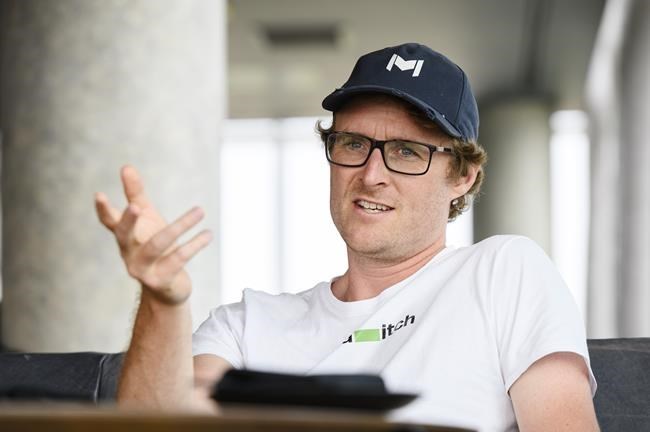TORONTO — When the Collision tech conference got underway in Toronto on Tuesday, there were two words that dominated discussions across the Enercare Centre: artificial intelligence.
From the speakers that took to the annual event’s stages to the swath of startups seeking investments and exposure, seemingly everyone had something to say about the technology that is poised to upend industries and transform everyday tasks.
"We are three steps into a 10-kilometre race," said Adam Selipsky, chief executive of Amazon Web Services (AWS), the e-commerce giant's cloud computing and database storage subsidiary, on stage Tuesday morning.
"So the question is where are the runners going? What's the course like, who's watching the race?"
He was questioned about whether AWS is already behind in the race because Microsoft has partnered with OpenAI, the maker of ChatGPT, a hit generative AI chatbot capable of humanlike conversations and tasks that debuted last year, and Google has its own rival product, Bard.
Amazon is at work on its own large language models — the underlying algorithms and deep-learning technology that AI products often run on — and is prepared to release it later this year, said Selipsky.
"We have a ton of urgency around generative AI and believe me, we're putting a ton of resources into all elements of generative AI but no code red because we think we understand where customers are asking us to go and we're just taking a little bit of a different approach."
That approach has come as concerns around AI are mounting.
More than 1,000 technology experts, including engineers from Amazon, Google, Meta and Microsoft as well as Apple co-founder Steve Wozniak, called for a six-month pause on training of AI systems more powerful than GPT-4, the large language model behind ChatGPT, in March.
“Powerful AI systems should be developed only once we are confident that their effects will be positive and their risks will be manageable,” they wrote in an open letter.
Sarah Guo, the founder of AI software investment firm Conviction, told the Collision audience she wouldn't sign the letter because she sees the technology as being capable of both bad and good, but feels the benefits will "dramatically outweigh the cons."
"I would be extremely disappointed....if we regulate it before we really have the time to see that impact."
Elad Gil, an investor and advisor to companies including Airbnb and Instacart, said he believes the biggest impacts of AI will come in health care, where it could be used for disease prediction that is more accurate than a doctor.
"Will you get an operation based on what ChatGPT tells you?" his panel's moderator asked.
"Maybe in five years," Gil said.
Like Guo, he warned that the sector should be wary of AI overregulation and compared the reaction to AI with the way people thought children playing video games in the nineties would mimic the games' violent behaviours.
He also made a comparison to cryptography, which some said would give people cover for bad behaviour, but has also helped advance security.
"It's the same argument every time we have a new technology and people get extremely worked up," Gil said.
Such conversations were no surprise to Collision chief executive Paddy Cosgrave.
“It's like everybody wants to know about AI,” he said days before his conference kicked off.
“Whether you're an old school, blue chip company or a senior executive from McDonald’s or Telus trying to stay on top of things in AI or you're building a company in the space, there'll be lots of discussion and views to be consumed.”
Collision has scheduled the so-called godfather of AI Geoffrey Hinton, who recently left Google to speak more freely about AI, to speak on Wednesday.
Executives at Google's AI research venture DeepMind and the founders of Canadian AI startup Cohere are also due to make appearances by the time the conference wraps on Thursday.
Cosgrave, however, was concerned that “AI is overhyped,” and said it was unusual for a single topic to dominate Collision, a shift from last year when blockchain, cryptocurrencies and layoffs sparked discussions at the event.
He cautioned that some of the realities around AI would be tough for the sector to acknowledge. For example, he sees China as having “outinnovated” the West on AI.
“We are failing our citizens and our societies and we're categorically lying to ourselves, if we think AI is going to be this kind of saviour and I think that's what’s happening at the moment.”
In recent months, Ottawa has been moving toward adopting new artificial intelligence legislation as part of a broader bill on consumer privacy and data protection.
The law would ban “reckless and malicious” AI use, establish oversight by a commissioner and the industry minister and impose financial penalties, but Ottawa has said it won’t come into effect until at least 2025.
This report by The Canadian Press was first published June 27, 2023.
Tara Deschamps, The Canadian Press

